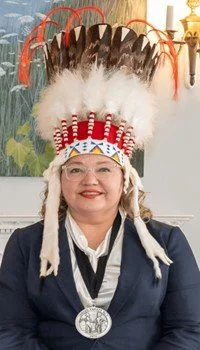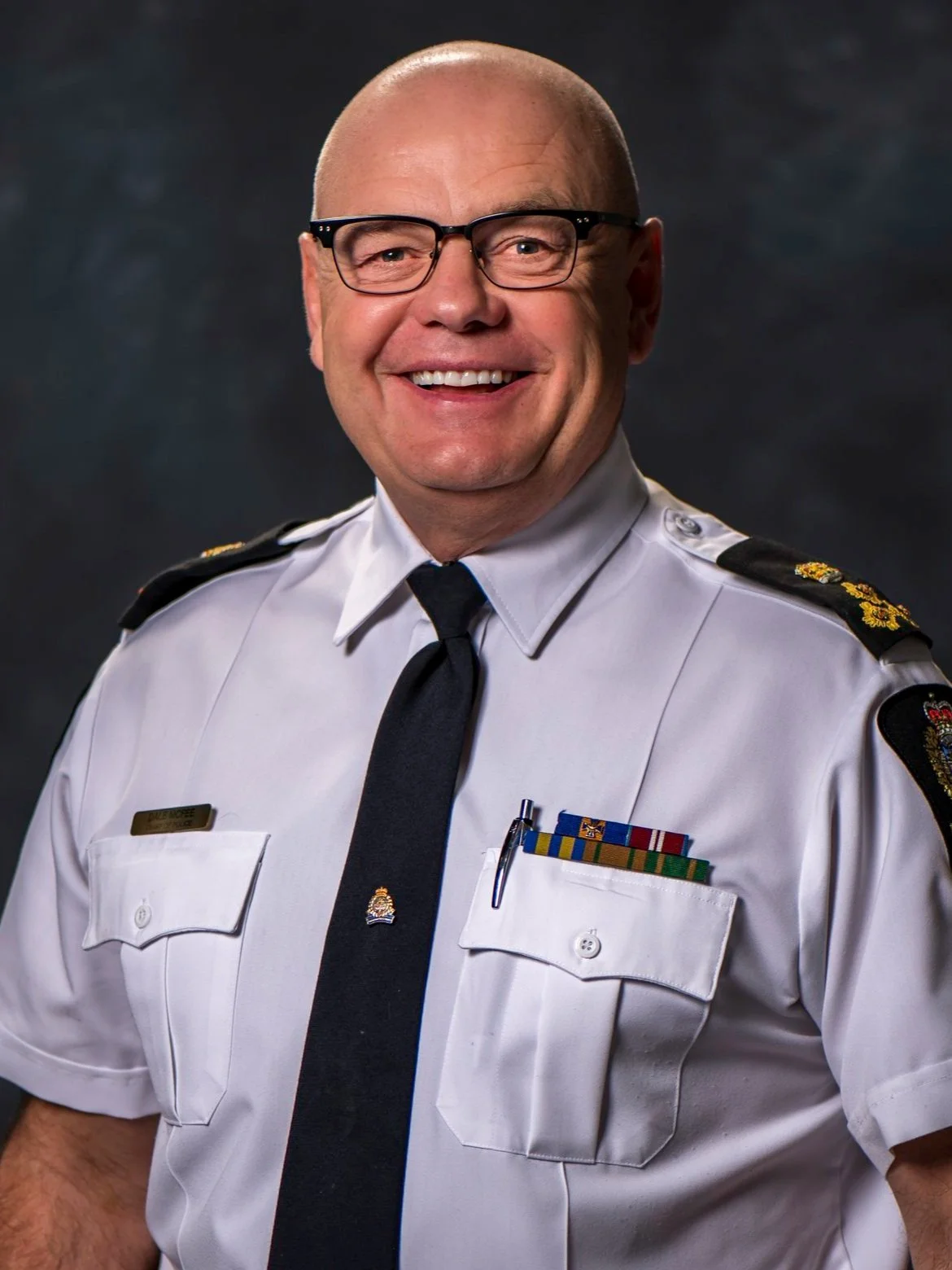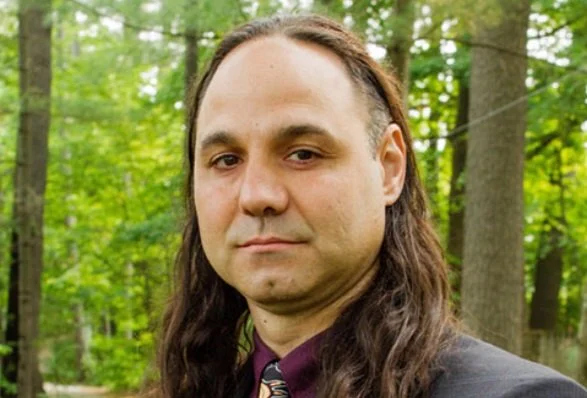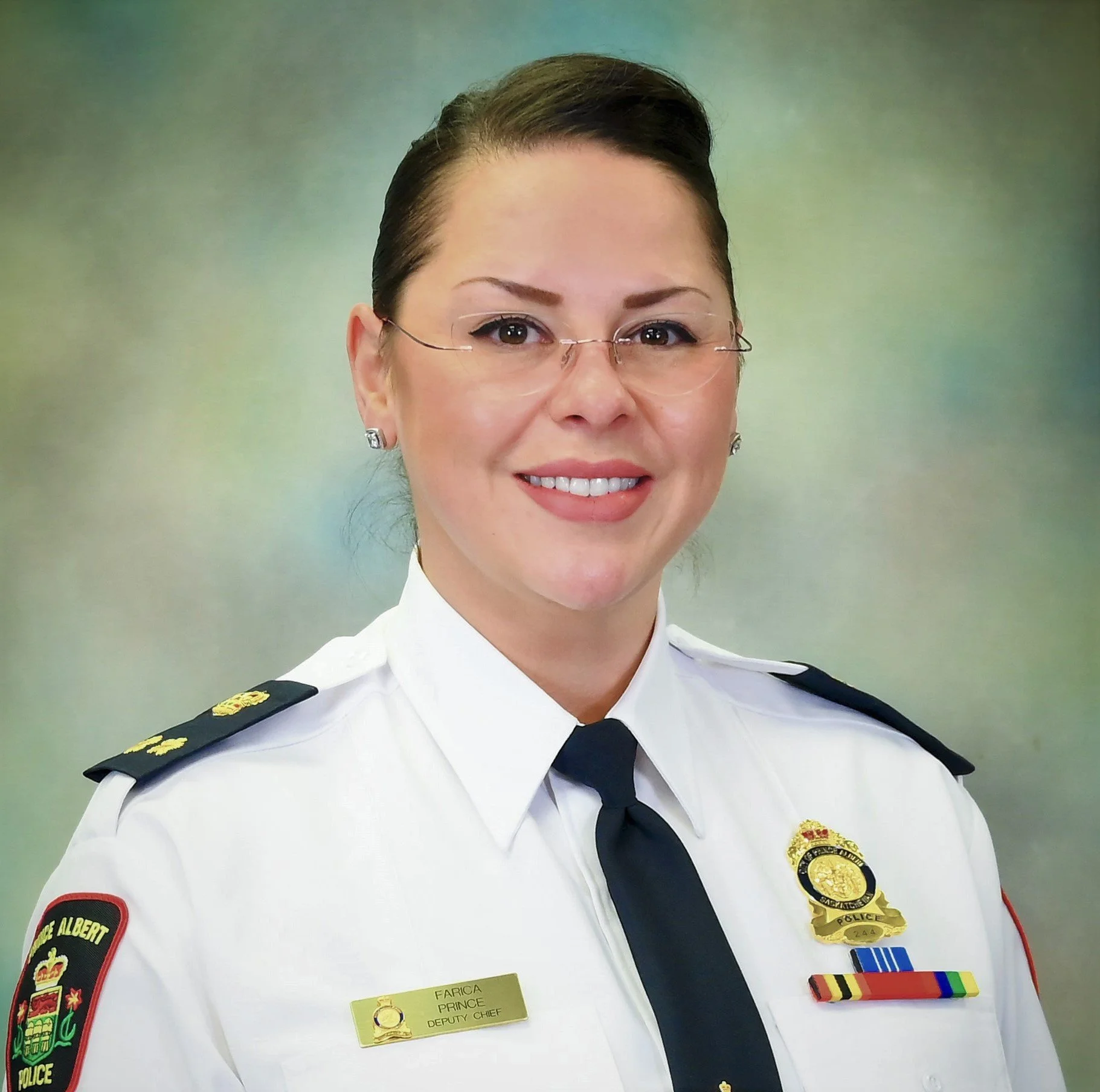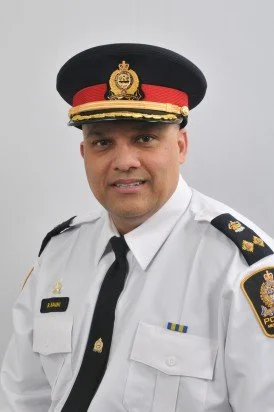
Indigenous Policing Forum 2025
June 4 & 5, 2025 at 9:00AM MDT
Grey Eagle Resort and Casino in Calgary, Alberta
Indigenous Policing Forum 2025
June 4 & 5, 2025
Overview
It is well known that Indigenous communities face racism, and higher crime and incarceration rates than the rest of Canada.
There are higher police incidents involving Indigenous people.
There is a crisis - in the last six months of 2024 there were 12 fatal interactions between police and Indigenous persons in Canada. The news coverage has been minimal.
What is happening around Intimate Partner Violence?
In these crisis times, it is crucial for all those involved with the system to explore and identify key elements in developing and implementing quality policing strategies and harm reduction measures for Indigenous communities.
There are new approaches to enforcing by-laws in Indigenous communities and recent successful court decisions.
Police departments across Canada have increased public scrutiny and calls for greater accountability.
In the middle of great conflict, there are enormous opportunities for growth and progress.
Join us as we bring together leading experts with a wealth of knowledge and experience.
Attend this two-day program to hear critical insights and updates that are affecting Indigenous police services, and police serving Indigenous communities.
This is essential learning for anyone interested in reconciliation and creating a better and safer future.
Key Areas Addressed:
Policing Reform and Building Trust Within Indigenous Communities
The Role of Governance - Avoiding Political Interference in Police Services and the Role of Police Boards
Indigenous People Policing Indigenous People
Enforcing Band By-Laws Under the Indian Act
A New Approach to Indigenous Communities Enforcing Band By-Laws
Diversity in Policing
12 Dead in 6 Months - Fatal Interactions between Police and Indigenous People
Intimate Partner Violence
Best Practices for Setting Up an Indigenous Police Service
Who Should Attend:
Indigenous leaders, council members, elders, and members of Indigenous community organizations
Indigenous police officers and Indigenous police boards members
Members of municipal, provincial, and federal police services that serve and protect Indigenous communities
Federal, provincial, territorial and municipal government officials
Lawyers practising in the area of Indigenous justice, and members of the judiciary making decisions impacting Indigenous peoples and communities
Parole and corrections officers, social workers, mental health workers, criminologists, court workers and others involved with the justice system
Agenda
Day One - June 4, 2025
9:00 - Welcome by PBLI
9:05 - Chair’s Welcome and Introduction
Rob Davis
Former Chief of Police, Brantford Police Service, Brantford, Ontario and Former Chief of Police, Lethbridge Police Service and Dryden Police Service
9:20 - Keynote Address – Innovative Approaches to Indigenous Policing
Dale McFee
Deputy Minister of Executive Council and Head of the Alberta Public Service, Former Chief of Police, Edmonton, Alberta
Use of technology in public safety
Addressing homelessness
Crisis management
10:10 - Questions and Discussion
10:30 - Refreshment Adjournment
10:45 - The Role of Governance - Avoiding Political Interference in Police Services and the Role of Police Boards
The Honourable Wally Oppal
Former Attorney General for British Columbia, Former MLA, BC and Former Justice of the BC Court of Appeal, OBC, KC
Teddy Manywounds
G4 Justice Director, Tsuut’ina Nation
The role of Governance
The role of Police Boards
Best strategies for avoiding political interference
What to do when there is political interference
Indigenous representation on police boards and why it matters
11:45 - Questions and Discussion
12:00 - Networking Lunch
1:00 - Enforcing Band By-Laws Under the Indian Act
Kyle Friesen
General Counsel, Legal Services, Surrey Police Service, BC and Former Legal Advisor to the RCMP Deputy Commissioner
Removal of persons from residences: Evictions and community safety
Public safety and protests: the right of everyone to peaceful, lawful and safe protests
Federal and provincial laws on reserve – police enforcement
Dealing with blockades
1:55 - Questions and Discussion
2:05 - Refreshment Adjournment
2:15 - A New Approach to Indigenous Communities Enforcing Band By-Laws
Jason Herbert
Falls Law, Bracebridge, Ontario
Drafting band council resolutions and bylaws to enforce policing matters
Recent successes
Can bands draft by-laws to deal membership and elections?
What to do in situations that require backup by other policing agencies?
3:05 - Questions and Discussion
3:15 - The Tsuut’ina Nation Experience: Nation Legislation Supported Through Police Enforcement
Chief Keith Blake
Chief of Police, Tsuut’ina Nation Police Service
Agreement with provincial prosecutors to enforce Nation Legislation in provincial courts
What communities want
Collaborative work in the community
Perfect alignment of legislation, enforcement and adjudication
4:00 - Questions and Discussion
4:15 - Chair’s Closing Remarks for Day One
4:25 - Forum Concludes for Day One
Day Two - June 5, 2025
9:00 - Chair’s Welcome to Day Two
Rob Davis
Former Chief of Police, Brantford Police Service, Brantford, Ontario and Former Chief of Police, Lethbridge Police Service and Dryden Police Service
9:10 - Keynote Address – Policing Reform and Building Trust Within Indigenous Communities
National Chief Cindy Woodhouse Nepinak
Assembly of First Nations, Ottawa
9:50 - Questions and Discussion
10:00 - Diversity in Policing
Deputy Chief Raj Saini
Deputy Chief, Medicine Hat Police Service, Alberta
Racism in day-to-day dealings
Are hiring strategies changing based on recent politics?
Merit based hiring
Are human rights changing in North America?
Is there a DEI backlash?
10:40 - Questions and Discussion
10:50 - Refreshment Adjournment
11:05 - Indigenous People Policing Indigenous People
Deputy Chief Farica Prince
Prince Albert Police Service, Saskatchewan
On reserve, rural and urban situations
Recruiting and retention
The challenges unique to Indigenous communities
11:50 - Questions and Discussion
12:00 - Networking Lunch
1:00 - 12 Dead in 6 Months - Fatal Interactions between Police and Indigenous People
Rob Davis
Former Chief of Police, Brantford Police Service, Brantford, Ontario and Former Chief of Police, Lethbridge Police Service and Dryden Police Service
Fatal use of force by police and the impact on Indigenous persons
Does anybody care? Invisible and dead in plain sight
What is being done? A blip on the news cycle
De-escalate, de-humanize, devastate, develop
All lives matter – Really?
What can be done to change the interaction between police and Indigenous people?
1:45 - Questions and Discussion
1:55 - Intimate Partner Violence
Senator Kim Pate
Former Ex. Dir. of Canadian Association of Elizabeth Fry Societies, Ottawa, Ontario
The epidemic and how to address it
What is being done across the country?
How the Gladue decision has been applied or misapplied
2:35 - Questions and Discussion
2:45 - Faculty Roundtable - Best Practices for Setting Up an Indigenous Police Service
Kyle Friesen
General Counsel, Legal Services, Surrey Police Service, BC and Former Legal Advisor to the RCMP Deputy Commissioner
What is working?
The recent case: Quebec v. Pekuakamiulnuatsh Takuhikan from the Supreme Court of Canada on policing and honour of the Crown
3:30 - Questions and Discussion
3:35 - Chair’s Closing Remarks
3:45 - Forum Concludes
Meet the Chair
-
Former Chief of Police, Brantford Police Service, Brantford, Ontario and Former Chief of Police, Lethbridge Police Service and Dryden Police Service
Chief Davis is a Mohawk from the Six Nations of the Grand River Territory and began his policing career in 1990. Chief Davis spearheaded the drive for the first Aboriginal police service in Canada to gain membership into the Criminal Intelligence Service of Ontario (CISO). Chief Davis has worked in active policing, as well as on educational programs to combat the impacts of gangs and organized crime on Aboriginal populations. Chief Davis is the recipient of the prestigious Gimborn Scholarship awarded to him for his efforts in combating organized crime and gangs. He has previously served as Chief of Police for the Dryden Police Service and the Lethbridge Police Service. In 2019, he was sworn in as the Chief of Police of the Brantford Police Service.
Keynote Speakers
-
Assembly of First Nations, Ottawa
Protecting collective rights–Treaty, inherent rights, title and jurisdiction, the right to self-determination, and all human rights.
National Chief Cindy Woodhouse Nepinak was born and raised in Pinaymootang First Nation, Manitoba. Her ancestor, Chief Richard Woodhouse, was an original signatory of Treaty No.2. She began her term as National Chief of the Assembly of First Nations on December 7, 2023, becoming the youngest woman and mother to hold the position.
National Chief Woodhouse Nepinak holds a Bachelor of Arts degree from the University of Winnipeg and has completed Harvard Business School’s Tribal Leaders program.
In 2021, she was elected as the Regional Chief for the AFN Manitoba Region. During her tenure, she was the lead negotiator for the First Nations Child and Family Services and Jordan’s Principle class action lawsuit, which resulted in over $40 billion compensation for First Nations children and families.
Throughout her career, National Chief Woodhouse Nepinak has accumulated a wealth of experience lobbying the Senate, House of Commons, Cabinet Ministers, and the Prime Minister’s Office to fulfill mandates from Chiefs. She continues to advocate for First Nations priorities, as directed by the First Nations-in-Assembly collaboratively with First Nations leadership, to protect collective rights–Treaty, inherent rights, title and jurisdiction, the right to self-determination, and all human rights.
Throughout her career, National Chief Woodhouse Nepinak has accumulated a wealth of experience lobbying the Senate, House of Commons, Cabinet Ministers, and the Prime Minister’s Office to fulfill mandates from Chiefs.
A mother to three children, she is passionate about leaving a better future for all First Nations children and the next seven generations, envisioning a future where all First Nations Peoples live in balance as our ancestors envisioned for us since time immemorial.
-
Deputy Minister of Executive Council and Head of the Alberta Public Service, Former Chief of Police, Edmonton, Alberta
On February 1, 2019, Dale McFee was sworn in as Police Chief for the Edmonton Police Service.Prior to this role, Dale served 6.5 years as the Deputy Minister of Corrections and Policing in the Ministry of Justice for the Government of Saskatchewan and was the Senior Deputy Minister involved with leading transformational change. Dale served as a police officer for 26 years in Prince Albert, Saskatchewan, including 9 years as the Chief of Police for the Prince Albert Police Service.
Dale has lectured extensively on leadership and change management nationally and internationally. He is a former member of Entrepreneurs International and served in the capacity of moderator for groups of business leaders within Saskatchewan. Dale is a past President of the Canadian Association Chief’s of Police, a former Chair of the Federal Provincial Deputy Ministers and former Co-Chair of CCJA within Stats Canada.
Meet the Faculty
-
Chief of Police, Tsuut’ina Nation Police Service
Chief of Police Keith Blake is proud to lead alongside the sworn and non-sworn members of Tosguna, and to serve the beautiful community of Tsuut’ina Nation. Chief Blake believes in the importance of providing community centered policing, adapting to meet the cultural and socioeconomic needs of the Tsuut’ina Peoples and to address root causes of crime.
After serving 24 years in the Royal Canadian Mounted Police, Keith Blake was sworn in as the 5th Chief of Police of the Tsuut’ina Nation Police Service on May 16th, 2013. Keith has been privileged to have completed all of his service in the Province of Alberta and experienced firsthand the culture, pride and honour in being a part of the policing in seven different First Nations communities across Alberta.
Currently, Chief Blake serves as Vice-President of the First Nation Chiefs of Police Association and is an active member of the Assembly of First Nations Policing Taskforce, working to co-develop long-overdue essential service legislation. He also contributes to the National Police Service National Advisory Committee and participates in the RCMP Commissioner’s Chiefs of Police Round Table. Additionally, Chief Blake acts as the Executive Sponsor for the Alberta Association of Chiefs of Police Policing with Indigenous Peoples Committee.
Keith is deeply committed to advocating for First Nations policing, raising awareness of its unique challenges, and championing solutions that celebrate the successes and resilience of Indigenous policing across Canada. Above all, he remains humbled and inspired by the opportunity to serve the visionary people of the Tsuut’ina Nation.
-
G4 Justice Director, Tsuut’ina Nation
Teddy, a 2-spirit Tsuut'ina First Nation member of Treaty 7, is currently the G4 Stoney Nakoda Tsuut’ina Tribal Council 's (SNTTC) Director of Justice and Public Safety. Teddy co-chairs the Tsuut'ina Nation Tosguna Police commission. Since 2022, Teddy has been on an Assembly of First Nations policing task force and is a member of the Indigenious advisory council for the Alberta Human Rights commission. He also holds a Position on the Public Safety Indigenious Advisory council under the ministry of Public Safety Alberta. Teddy is the current Chair for the First Nations Police Governance Council (FNPGC). Together, we will develop mechanisms that honour Treaty rights to Justice and Public safety, and foster community connection for all people through conversations that grow our communities.
-
General Counsel, Legal Services, Surrey Police Service, BC and Former Legal Advisor to the RCMP Deputy Commissioner
Kyle is General Counsel, Legal Services for the new Surrey Police Service, following 22+ years as Legal Advisor to the RCMP in British Columbia. Since 1998, he has provided "live" legal advice on all operational and administrative policing matters, including Indigenous Policing across Canada. He was Legal Counsel to the Vancouver 2010 Integrated Security Unit for the 2010 Winter Olympics. Kyle was posted from 1994-1998 with the Office of the Information and Privacy Commissioner of BC, dealing with police departments and law enforcement issues, including public interest notifications about dangerous persons. From 1986 to 1994, he held various posts in the national security sector in Ottawa. In 2007 and again in 2014, he received Commanding Officer's Commendations for service to the RCMP. In 2010, he received the Deputy Minister of Justice National Team Award for services during the 2010 Winter Olympics. In 2012, he was awarded the Queen's Diamond Jubilee Medal for public service. In 2016, he received the Sovereign’s Medal for Volunteers from the Governor General of Canada for his service to the community.
-
Partner, Falls Law Group, Bracebridge, ON
Jay is a Partner at Falls Law Group and Lead Counsel on this work. He holds a Juris Doctor from the University of Toronto Faculty of Law and a History Specialist Degree from York University.
Jay’s practice focuses on serving First Nation interests and Indigenous clientele. He is experienced in civil and criminal litigation at the trial and appeal levels and routinely defends individuals charged with serious criminal offences. As a successful litigator, Jay’s in-depth working knowledge of the justice system informs his practical strategy and policy recommendations for First Nations.
Jay leads Falls Law Group’s work in First Nation policing, which includes acting as Private Prosecutor for several First Nations, recently bringing the first private prosecution of a First Nation’s Land Code Law in Ontario and the Eastern Provinces.
A member of Rama First Nation, Jay is an elected trustee of the Coldwater Narrows Land Trust and has significant experience acting on behalf of Indigenous individuals and providing services to First Nations, including policy development and strategy, and support drafting and implementing enforceable First Nation laws.
Jay focuses on providing practical, strategic, and actionable solutions, whether for a First Nation seeking to develop enforceable laws or an individual needing legal advice.
-
Former Attorney General for British Columbia, Former MLA, BC, Former Justice of the BC Court of Appeal, OBC, KC
Wally Oppal was a trial lawyer for 14 years. During that time, he was appointed as a Special Prosecutor by the Attorney General on many high profile criminal cases. From 1981 until 2005, he served as a Judge on the County Court of BC, on the Supreme Court of BC, and on the Court of Appeal for BC. While on the Supreme Court, he was appointed to conduct a commission of inquiry into policing, which led to many reforms in policing, both in BC and Canada. In particular, it led to the establishment of the Office of the Public Complaint Commissioner. In 2005, Wally Oppal was appointed Attorney General for BC and Minister of Multiculturalism. During his time as Attorney General, a Community Court was established in order to deal with chronic offenders, the first in Canada. He was also involved in the appointment of an inquiry into the wrongful death of Frank Paul, an Indigenous person who died after being left in an alley by the Vancouver Police. After leaving government, he was the sole commissioner to conduct the Pickton inquiry into the missing and murdered women. The findings of the inquiry, detailed in a 14,000 page report, led to many changes on how police investigate wrongful deaths of Indigenous girls and woman. Wally Oppal is a mediator and arbitrator, particularly in commercial disputes involving business, Government and First Nations. Wally is also an adjudicator and commissioner in disciplinary matters under the Police Act of BC. Wally has dedicated his entire working life to the pursuit of social justice and community safety. Wally’s service to the public of this province, most recently as Commissioner of the Missing Women Commission of Inquiry, is of special significance.
-
Former Ex. Dir. of Canadian Association of Elizabeth Fry Societies
Kim Pate was appointed to the Senate of Canada on November 10, 2016. First and foremost, the mother of Michael and Madison, she is also a nationally renowned advocate who has spent the last 45+ years working in and around the legal and penal systems of Canada, with and on behalf of some of the most marginalized, victimized, criminalized and institutionalized — particularly imprisoned youth, men and women.
Senator Pate graduated from Dalhousie Law School in 1984 with honours in the Clinical Law Programme. She was the Executive Director of the Canadian Association of Elizabeth Fry Societies (CAEFS) from January 1992 until her appointment to the Senate in November 2016. She has developed and taught Prison Law, Human Rights and Social Justice and Defending Battered Women on Trial courses at the Faculties of Law at the University of Ottawa, Dalhousie University and the University of Saskatchewan. She also occupied the Sallows Chair in Human Rights at the University of Saskatchewan College of Law in 2014 and 2015.
Kim Pate is widely credited as the driving force behind the Inquiry into Certain Events at the Prison for Women in Kingston, headed by Justice Louise Arbour. During the Inquiry, she supported women as they aired their experiences and was a critical resource and witness in the Inquiry itself.
Senator Pate is a member of the Order of Canada, a recipient of the Governor General’s Award in Commemoration of the Persons Case, the Canadian Bar Association’s Bertha Wilson Touchstone Award, and six honourary doctorates (Law Society of Upper Canada, University of Ottawa, Carleton University, St. Thomas University, Wilfred Laurier University, and Nipissing University).
-
Deputy Chief of Police, Prince Albert Police Service, Prince Albert, SK
Farica began her career in October 2001 with Dakota Ojibway Police Service and was posted to her home community of Sioux Valley Dakota Nation in southern Manitoba, after graduating from RCMP’s Depot Division. In 2005 Farica joined the Blood Tribe Police Service in southern Alberta where she served in patrol until 2008. It was during these formative years of her career that her dedication to people-centered community policing was born. In 2008 she was deployed on a secondment where she instructed at RCMP’s Depot Division, first in Applied Police Science and then the Firearms Training Unit. In 2011 Farica returned to the Blood Tribe Police Service patrol section where was promoted to Sergeant and served as a Watch Commander until 2013, when she became an Acting Staff Sergeant responsible for Operations. In 2018 Farica was promoted to Inspector and in 2019 she graduated from Charles Sturt University with a Bachelor of Policing. Deputy Chief Farica Prince has led many initiatives in different areas within policing; patrol, operations, training, professional standards, communications, prisoner detention, recruiting, human resource management, policy and procedure, provincial standards, procurement, information management. Farica is actively involved with the Canadian Association of Chiefs of Police - Equity, Diversity and Inclusion committee where she serves a co-chair. Farica is also active within Saskatchewan Association of Chiefs of Police and previously with Alberta Association of Chiefs of Police. A leader who is focused on the “human factor”, Farica’s compassion and relatability has contributed to her success in many ways.
-
Deputy Chief, Medicine Hat Police Service
Raj Saini began his policing career in 1999 with the Brantford Police Service, where he developed a strong foundation in frontline policing and criminal investigations. In January 2022, Raj accepted the position of Deputy Chief of Police with the Nelson Police Department, where he was responsible for overseeing both the operational and administrative functions of the department. Raj has led diverse teams, managed complex investigations, and implemented technology-driven solutions throughout his career.
Academically, Deputy Chief Saini is deeply committed to advancing the professionalization of policing through education and evidence-based strategies. He holds a Bachelor of Arts in Psychology and a Master of Public Safety and is currently a Doctoral candidate in Public Safety. His academic pursuits align with his dedication to modernizing policing practices, fostering leadership development, and implementing progressive community safety strategies.
Deputy Chief Saini joined the Medicine Hat Police Service in January 2025 and in his current role oversees both the Operational and Support Service Divisions of the Service.
Registration Form
Program:
Indigenous Policing Forum 2025
Date:
June 4 & 5, 2025
Location:
Grey Eagle Resort and Casino, 3779 Grey Eagle Drive, Calgary, Alberta
Registration:
The registration fee is $1,465.00 plus GST of $73.25 totalling $1,538.25 for in-person attendance. Registration fee covers your attendance at the program and electronic materials. In-person attendance includes a catered lunch and refreshments throughout the day.
Early Bird Discount:
Register by May 5, 2025 and receive a $200 discount on the registration fee ($1,265.00 plus GST). Discounts cannot be combined.
Group Discount:
Register four persons from the same organization at the same time and you are entitled to a complimentary fifth registration. Discounts cannot be combined.
If you would like to register a group, please fill out this form and email it to registrations@pbli.com:
Payment:
You may pay by VISA, Mastercard or cheque. Cheques should be made payable to the Pacific Business & Law Institute and mailed to Unit 2-2246 Spruce Street, Vancouver, BC V6H 2P3. Please do not send cheques via courier with signature required.
When and Where:
Check-in begins at 8:30 a.m. The program starts at 9:00 a.m. (MDT). The Grey Eagle Resort and Casino is located at 3779 Grey Eagle Drive, Calgary, Alberta. Please visit https://www.greyeagleresortandcasino.ca/getting-here/ for directions.
Materials:
We will distribute papers and/or other materials provided by the faculty explaining many of the points raised during this program. Materials will be distributed electronically. Please contact us at registrations@pbli.com if you are unable to attend the program and wish to purchase a set of materials.
Cancellations/Transfers:
Refunds will be given for cancellations (less a $60.00 administration fee) if notice is received in writing five full business days prior to the program (May 28, 2025). After that time we are unable to refund registration fees. Substitutions will be permitted. We reserve the right to cancel, change or revise the date, faculty, content, availability of webinar or venue and transfer in-person registration to webinar registration for this event.
To register by phone:
Telephone us: 604-730-2500
Your Privacy:
We will keep all information that you provide to us in strict confidence, other than to prepare a delegate list containing your name, title, firm and city for our faculty and the program delegates. We do not share our mailing lists with any non-affiliated organization.
Course Accreditation:
Attendance at this course can be listed for up to 11.5 hours of continuing professional development credits with the Law Society of BC. For practitioners in other jurisdictions, please check your governing body’s CPD requirements.
If you would like to register a group, please fill out this form (DOWNLOAD FORM) and email it to registrations@pbli.com; for individual registration, please continue with form below.

